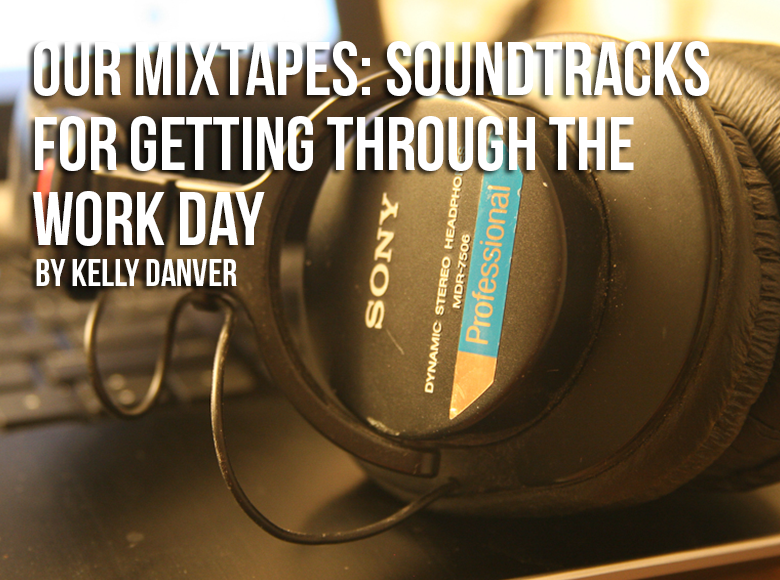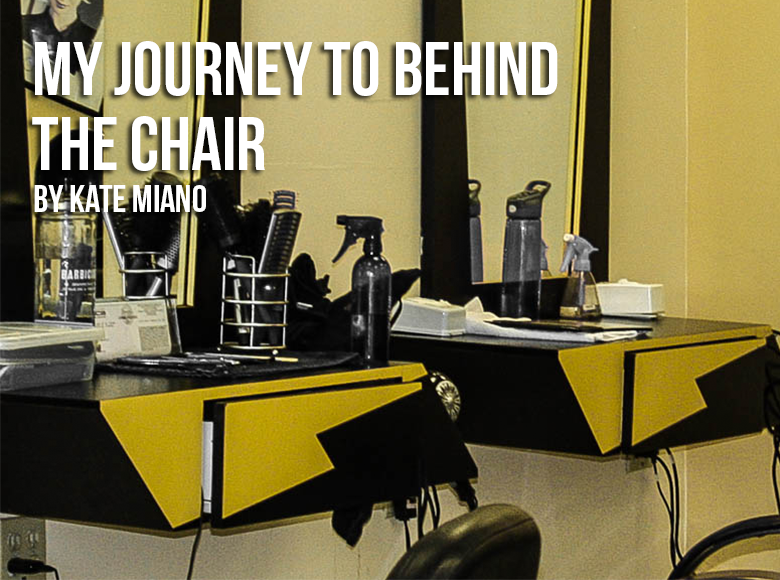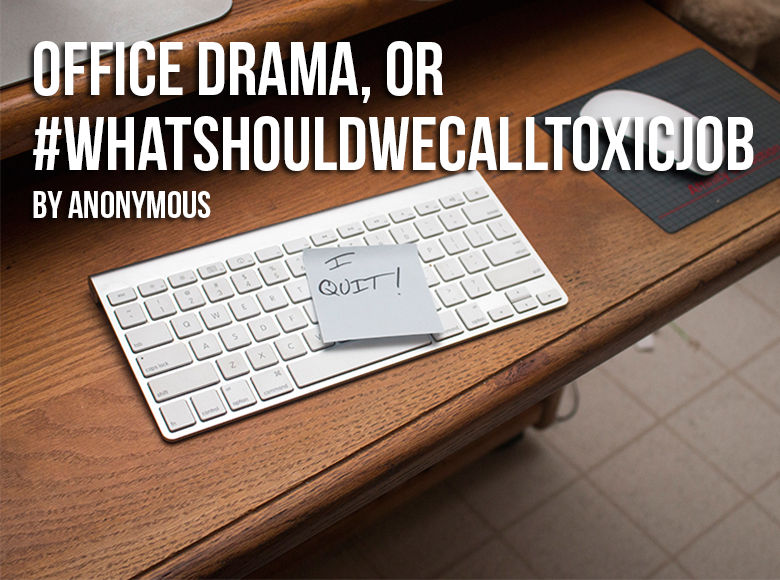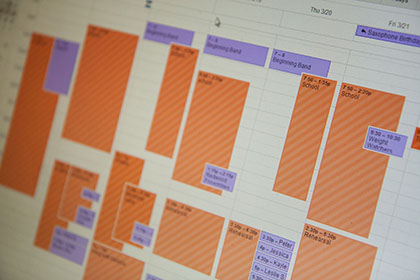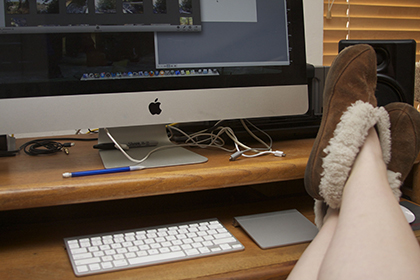Three UE writers, Sally, Jessica, and Emma, sat down to discuss what it means to “make it.” They were joined by Sally’s mom, Anne, who shared her perspective. They have asked that their names be changed for honesty.
Anne: I chose to take time off to raise my kids because I figured you can always get a career, but you can’t get kids’ lives back.
Jessica: Yeah, totally.
Anne: So I chose to do that and everybody said it was a mistake. And when I tried to go back to work, everybody wanted me to start all over again. They think if you take the time off to raise your family, you sit at home and lie on the couch.
Jessica: Obviously.
Sally: And you’ll forget everything.
Anne: I don’t know anybody who’s ever raised kids that has laid on a couch.
Everybody laughs.
Emma: Do you think that’s changing?
Anne: I honestly don’t know. I have a different perspective about people and their families now. It’s not necessarily a positive one. But I said, “Well, if I’m gonna start all over again, it sure as hell isn’t gonna be for some corporate asshole.”
Everybody laughs.
Anne: It’s gonna be for me. So that’s what I did.
Jessica: That’ll be the tagline.
Anne: I think it’s probably easier to go back at the same level. But, in my day, most people didn’t come back—they just never came back. They had their kids and they didn’t come back. But if you had any kind of position or potential, it was like by choosing to stop you’re kind of shortcutting yourself. It was very hard to get ahead and I was at the point where people said, “Well, you know, you have a lot of opportunities—you’re gonna have a lot of opportunity, you’re gonna go really go far,” and I was “throwing it all away.”
Emma: But it’s just so fascinating that in the generation before you, every woman who was working was basically hearing, “You’re a terrible mom,” or “How dare you work and screw up your family.”
Anne: Well, my mom raised seven kids and she never worked. I mean, that’s what you did.
Jessica: But that’s how that perception has changed. Now: if you do work, you’re a bad mom; if you don’t work, you’re a bad mom. How do you make that choice?
Emma: You find the balance that works for you and your family. Turning perceptions into expectations makes for a lot more bad than good. Following your instincts is way better than societal pressures.
Jessica: I think it all comes down to “self-worth.” I know far too many twenty-somethings, myself included, that tied—or are still tying—all their self-worth to their jobs.
Sally: I remember one of my co-workers telling me that when I first walked into my last job, I was my “best self” that I had this confident “sass.” But the pressures of trying to be perfect took that all away, and he said, “It was just so sad to see how your confidence completely diminished and to watch you second guess every single thing you did.” Because, by the end, I was so unhappy and I needed validation and approval every step of the way. And even though that’s in the past now, I still feel like I’m trying to find my own self-motivation and self-confidence.
Jessica: And when it’s what you’re used to—when it’s where you’ve found your value—that’s a very hard thing to do.
Sally: Yeah, when I left, he told me again, “You cannot tie all of your self-worth to your success at your job.”
Jessica: I did that for a very long time, you watched me do it.
Sally: Everybody does it.
Jessica: Not everybody.
Sally: A lot of people do it. People who confuse drive and ambition and trying to play the game.
Jessica: People do it in different ways. Some people do it to their jobs, some people do it to their relationships, some people do it to their families: it depends.
Sally: Well it all goes back to perfectionism—trying to change yourself to fit that perfect ideal.
Jessica: You’ve got the craziest role model here though. (Nodding towards Anne.) She quit, walked away from her career and raised your family.
Sally: Yeah.
Emma: And then was like, “I’m gonna come back and start my own business.”
Jessica: My mom left her career because she hated it but she’s never been able to forgive herself for not finding a way to like it—or find another job that made her happy. So she’s always felt like she did something wrong because she never found a way to be happy and earn money. I remember, growing up, she didn’t want to be called a stay-at-home mom. But she was an awesome stay-at-home mom, and a writer, and it’s just that she saw that as a failing instead of seeing it as this really cool thing she got to do.
Emma: Yeah, like she needed to both work and be a mom. To be only one is—
Jessica: —To fail. I think that was because it wasn’t an active choice she made, like she didn’t actively choose to be a stay-at-home mom. Rather it was a reaction to being so miserable in her career.
Emma: But that reaction is still a choice.
Jessica: Exactly. “I’m miserable and I’m choosing to do this so I won’t be miserable anymore.” And let’s be honest, life is just as much about our successes as it is about our failures. And how we react to those failures is probably even more important than how we react to success.
Emma: Amen.
Jessica: “Bravery isn’t a lack of fear, it’s doing something despite your fear”… That’s a quote I stole from UE writer, Lily Henderson. But, the first and only time I ever quit a job, it was one of the most terrifying and painful things I’d ever done. And, from the outside, it looked really brave, but from my perspective, it was fucking terrible. But once I realized that the world didn’t end, it was like, oh…
Sally: It’s all about how you define success. I mean it’s interesting because you compare and contrast: I have a friend who’s getting promoted at age 23 and I have other friends who are like 30.
Emma: But what are you measuring?
Jessica: What is happiness? And is it defined by age? Because I feel like that marking system goes back to this idea that you are only “making it” if you have a successful career. I had a very successful career at 23 but I was really unhappy. I thought I had “made it” but all I had was my career. If you don’t have anything else, or the time to find anything else, it won’t ever fill that void.
Sally: That’s the thing I’ve had to learn, to try and really let go of this idea that it’s not a race. It doesn’t matter. And that I don’t really know what I want to do and it’s all about trying to learn.
Jessica: I look at my life, I used to be able to go into rooms and be like, “I do this,” and people would be like, “Oh shit, I want talk to you, I want you to help me get me a job like that.” Now, people are like, “Wait, what do you do?” And it’s not that it comes from a place of judgement, but it’s confusion, because I have an unconventional, “un-famous” job now. But it’s the perfect job for me right now. Because even though it’s only tangentially related to my “career,” I’m way happier as a person, way happier in all the elements. So it’s that balance, those choices. But the point that I was gonna go back and make right after you were talking about how miserable you were at your job, was that we all sat around and told you this, and people sat around and told me this when I was unhappy, but—
Sally: It doesn’t matter until you realize it yourself.
Jessica: Yeah, you can’t learn that lesson until you learn it yourself.
Sally: I would hear it and I would understand it logically, but I still couldn’t emotionally accept it. You have to get to that part. And that can be very hard.
Jessica: Absolutely.
Sally: I remember when I got coffee with a friend and he was like, “Hey how are you?” I was like, “Oh I’m really great.” And he’s like, “How’s the new job? Wait! No I didn’t want that to be my first question!” The whole point was we were gonna meet for coffee and be friends and not talk about work. You’re changing your identity and who you are—as you see you and as others see you. I’m trying not to be defined by my work anymore. And it’s hard.
Jessica: So hard. That’s a huge shift. I had to leave this city and come back to do that. But I’m so glad I did.

Photo by Michael Cox
